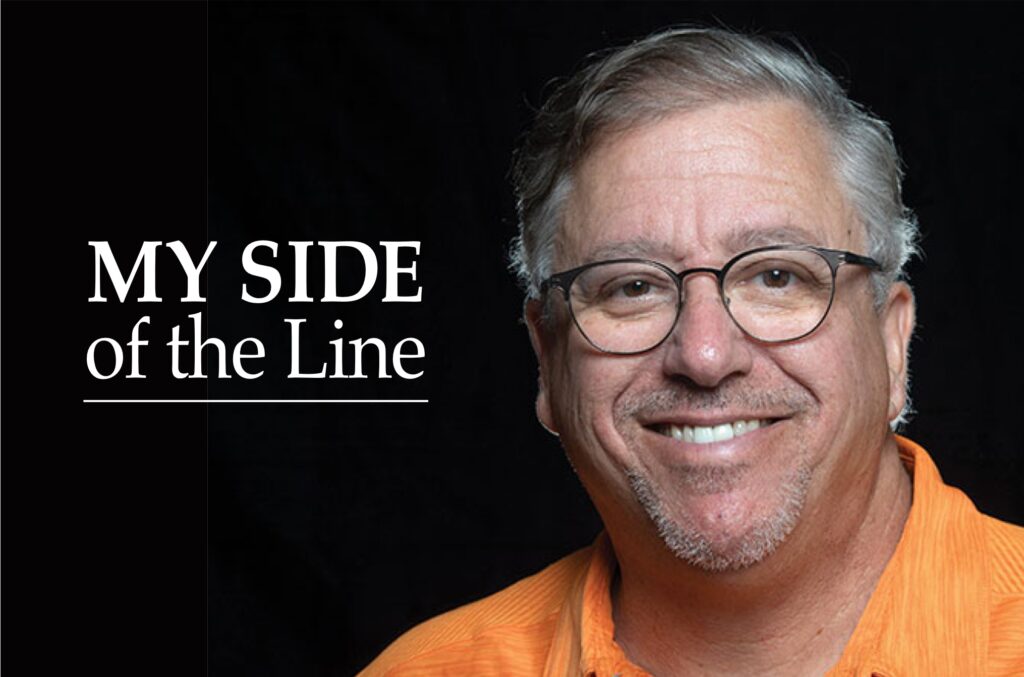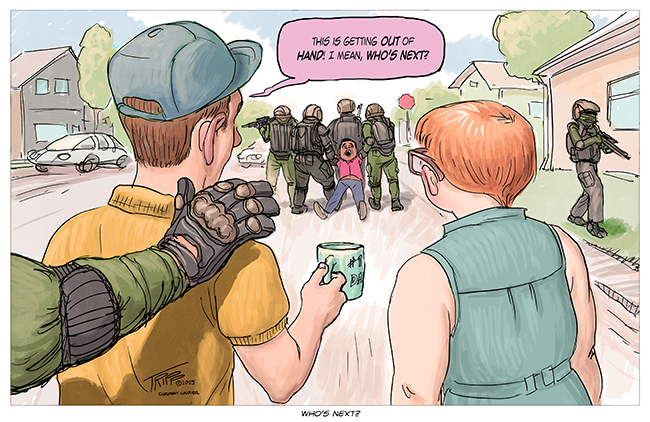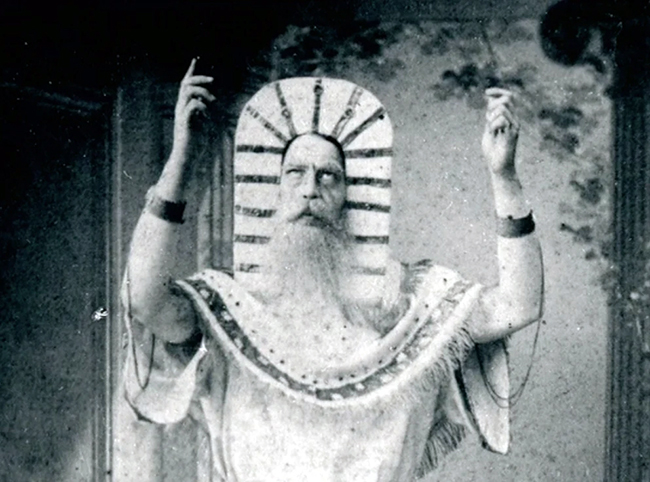Seeing the world changing in the old classroom
by John Pixley
Some things haven’t changed. The film started late. When I got to the auditorium, I wondered if the screening was canceled, because it looked like no one was showing up. Maybe I hadn’t gotten the notice.
When I saw that the room was still empty at 7:30 when the film was scheduled to start, I asked the young woman who opened the door for me if I had the right time. She said I did. No problem. No worries.
Sure enough, people began coming in a few minutes later, and the film started after about 15 minutes. I shouldn’t have been surprised. The late start was nothing new at Pitzer College, where the world is a bit less stressed and a bit more colorful if no less rigorous. After all, this is where I attended a fall convocation years ago, and the faculty entered, eventually, to the strains of Cat Stevens’ “Oh, They’re Young.” This is where the graduating seniors wear bright orange and white robes. They may as well be wearing tye-dye.
As Ben Cotner noted, however, the room had changed. Mr. Cotner, who graduated from Pitzer some years ago, spoke and answered questions after the film, The Case Against 8, which he directed along with Ryan White. He said that it felt a bit strange to be showing his documentary, which won an award at the Sundance Film Festival and has been picked up by HBO, in a room where he took many classes.
It was no longer the dark and cramped hole-in-the-wall Avery Hall with the ceiling pressing down, the wheelchair seating crammed in and the slamming doors opening onto the covered concrete walkway. It was the more spacious and lighter George Benson Auditorium with a nice lobby featuring a colorful mural depicting social activism. Although it is no architectural wonder, and although it is now several years old, it’s still a noticeable improvement.
That wasn’t the only change, though. And it wasn’t just that a former student, now an award-winning documentary filmmaker featured on a major television channel, was back on campus.
Lots of things have changed. And they have changed a lot, as Mr. Cotner’s film showed. What’s more, things have changed even more than the documentary shows.
The Case Against 8 is a behind-the-scenes look at the effort to overturn Proposition 8, which outlawed same-sex marriage in California. It is a compelling procedural, almost like a whodunit, with an emotional whallop. It focuses on the gay and lesbian couples who were the plaintiffs in the case and their remarkable lawyers, David Boies and Theodore Olson, as they formulated and presented their arguments. There are glimpses of the pro-Prop 8 folks, and I’d like to have heard more from them and their reasoning (perhaps that’s the journalist in me, or do I just want to see their bigotry and foolishness and, in some cases, breathtakingly changed minds exposed?) But, as he explained, that’s not the film Mr. Cotner and his co-director set out to make.
There is incredible change seen in this documentary, just as it is. Yes, there are those lawyers and their remarkable pairing, with Mr. Boise and Mr. Olson having famously been on the opposing sides in the Gore vs. Bush case in Florida that determined the outcome of the 2000 election. Mr. Olson is a staunch conservative who, as seen in the film, was pilloried for arguing against a same-sex marriage ban.
It is a remarkable change that a conservative lawyer would stand and argue for the right of a gay or lesbian couple to marry. It is a real change that getting married is more than some wild-eyed vision in some progressive corner of the gay community. What is more remarkable and even more of a change is that—far from being seriously debated in society, much less the courts—the idea of two men or two women getting married didn’t exist or was even a joke when I was growing up. It was frankly unthinkable.
But I saw an even bigger, more remarkable, change as I watched the documentary. I couldn’t help thinking that, as fascinating as it is as a document, the film is out of date. It is history. Proposition 8 and the case against it is, as my nephew would say, so yesterday. It is all but quaint. After all, as the result of court rulings and other moves in the past 10 months since the film was completed, same-sex marriage is now legal is 37 of the 50 states plus the District of Columbia and is federally recognized. It is widely thought that the US Supreme Court will make it legal nationwide by the end of June.
That’s some real change. I’d venture to say even more of a change than what Mr. Cotner, who mentioned having a husband, planned on or dreamed of showing. Indeed, everyone with anything to say has commented that the change in attitude regarding gay people in general and same-sex marriage in particular over the last 10 or 20 years has been breathtaking.
It is easy to say we are far away from all this change in Claremont. It is easy, in this tree-lined small town, to not see the shootings and angry protests, the beheadings and drone strikes, the people without homes and the unspeakable disasters. It is easy here to think that is all another world.
But it’s not, and we’re not so far away. For one thing, we all have neighbors who are gay men and lesbians, some of whom are raising families. Claremont has paid same-sex benefits for some years.
And the end of another school year—yes, already!—is another reminder that Claremont isn’t so far away from all that is going on changing in the world. As with Ben Cotner coming back to his classroom at Pitzer College and showing his important, remarkable film, the Colleges brings the world to Claremont. Look at all the leaders and experts who come to the Colleges to speak and, of course, there is all the learning that takes place here to prepare the graduates going out into the world.
I also suspect that being at Pitzer and in Claremont played a part in making Mr. Cotner someone who speaks up and makes compelling films. Who knows how many people Claremont has changed in this way? But, surely, not only does the world come to Claremont, Claremont goes out into the world.










0 Comments